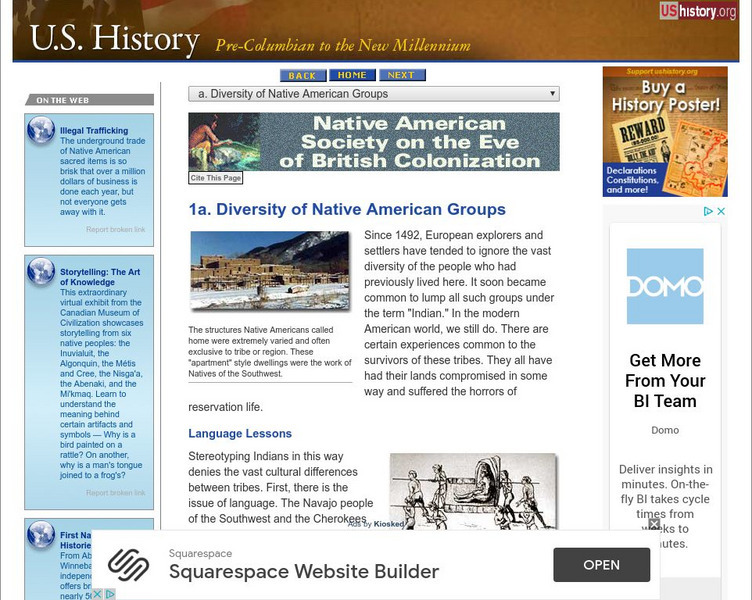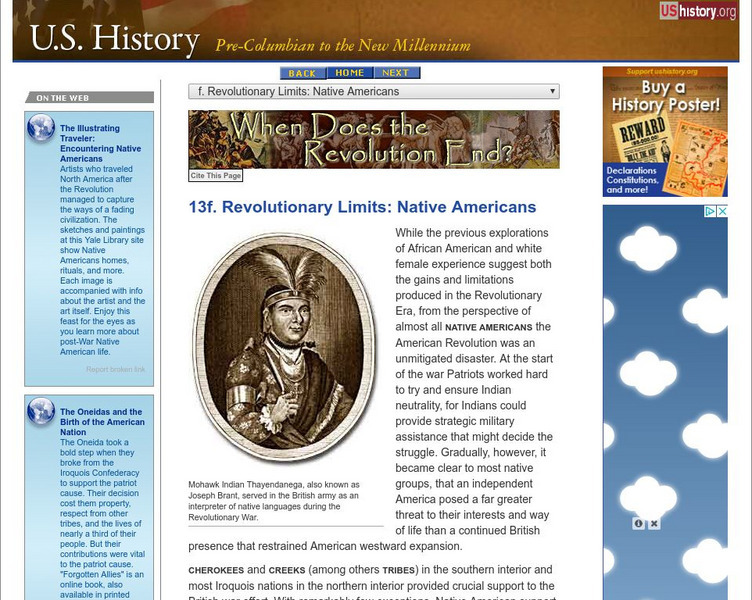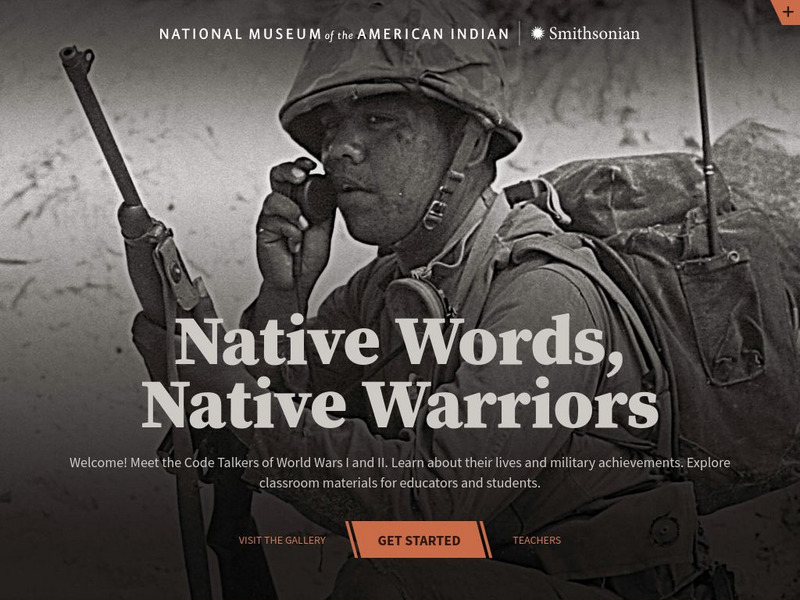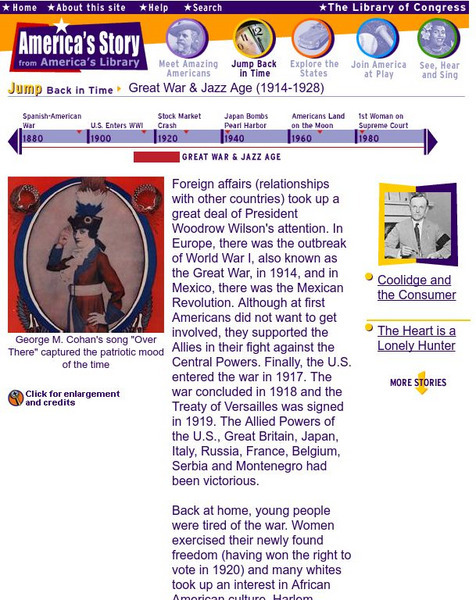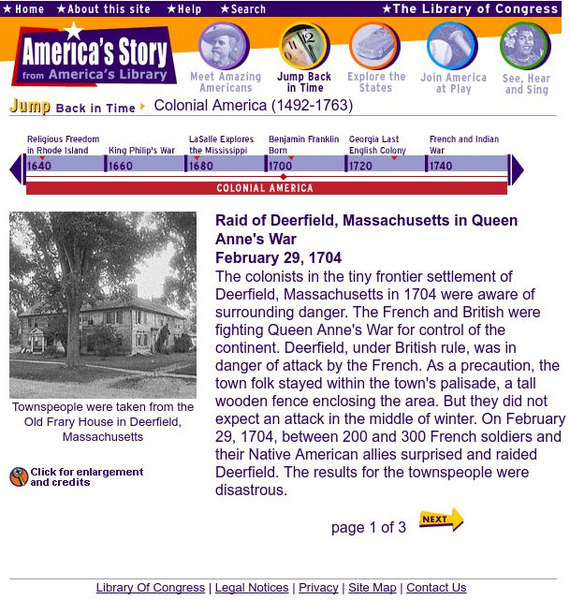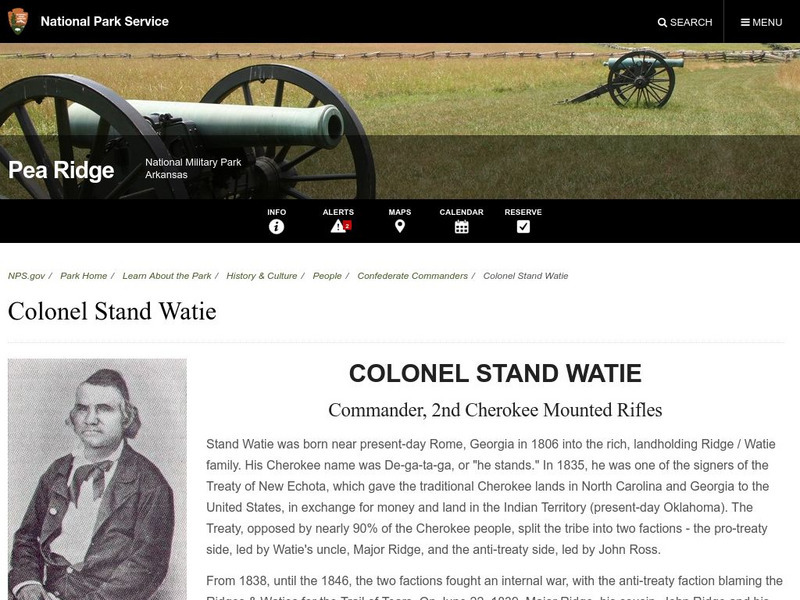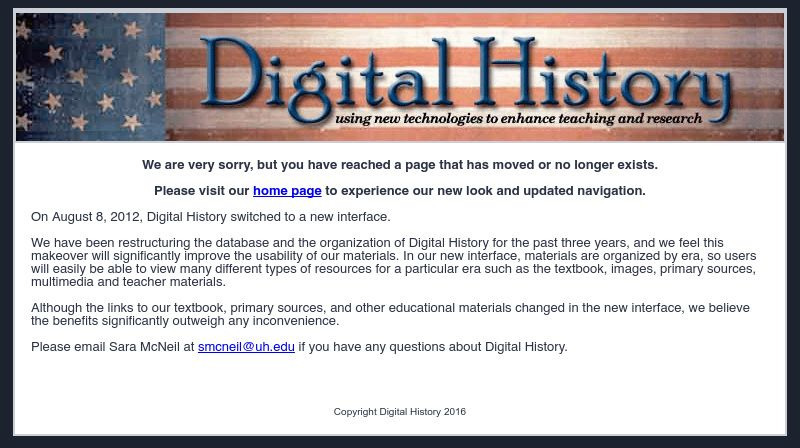Smithsonian Institution
Western Indian Wars
Why do many Native Americans live on reservations? An interactive resource teaches about how reservations came to be and the tragic history behind Native Americans moving from their lands. Teenagers read passages, view images, and click...
Smithsonian Institution
Eastern Indian Wars
Many know that Native Americans were forced off their lands and moved west, but how did these people react? The Red Sticks faction of the Creek nation opted to defend themselves and their lands in a series of wars called the Eastern...
Smithsonian Institution
Mexican War
Did you know that without the Mexican War, the United States would not include the states of Arizona, California, New Mexico, Texas, Nevada, Utah, and even parts of Colorado? Scholars learn a variety of interesting facts about the...
Other
Army: Native Americans in the u.s. Army: Code Talkers
During World War I and World War II, Native Americans from various tribes worked to keep American military communications secret through the use of tribal languages as code. Learn how these individuals worked to create codes that the...
University of Groningen
American History: Outlines: The Native American Movement
Overview of the Native American push for Civil Rights in a post World War II America.
Independence Hall Association
U.s. History: Diversity of Native American Groups
Look at the diversity in language, housing, government, and language among the Native American tribes that existed before the Europeans made contact. There is a brief discussion of the Navajo language and the use of Navajo code talkers...
Independence Hall Association
U.s. History: Revolutionary Limits: Native Americans
A good description of the actions and fate of the Native Americans who allied with the British to fight against the Americans. Find out that while the Native Americans had treaties with the British, they were not represented at the talks...
Smithsonian Institution
National Museum of the American Indian: Native Words: Code Talking
Learn how members of many Native American tribes became a vital part of America's efforts during World War I and World War II, divising codes that were never broken by the enemy. Includes examples of encoded words.
Other
Defense: American Indian Heritage Month: Code Talkers
Find out about the Native Americans who used their tribal languages as code during World War I and World War II. Includes information on Charles Chibitty, a Comanche code talker who was inducted into the Pentagon's Hall of Heroes.
Digital History
Digital History: The Fate of Native Americans
A brief look at the inability of Native Americans to halt the settlement of their lands by American colonists after the French and Indian War. There is a short description of Chief Pontiac and his alliance of several tribes which fought...
Smithsonian Institution
National Museum of the American Indian: Native Words, Native Warriors
Excellent online companion site to a traveling Smithsonian Institution exhibition on the World War I & World War II American Indian Code Talkers. Features information on Native languages, boarding schools, code talking, and lesson...
Other
Combined Arms Research Library: Atlas of the Sioux Wars:
An in-depth look at the Sioux Wars from 1862-1877. Included are maps for many topics discussed.
Library of Congress
Loc: America's Story: Great War & Jazz Age (1914 1928)
This Library of Congress time-line series surveys World War I and the Jazz Age. When World War I broke out in Europe, many changes were going on in the United States. Women were voting for the first time and African-American culture was...
Library of Congress
Loc: America's Story: Raid of Deerfield
Discover facts about the raid at Deerfield, Massachusetts. This feature describes the attach of the colony, as well as the ally relationship between the French and Native Americans. Provides three pages of information, as well as an...
Other
Choctaw Nation of Oklahoma
Learn about the history of the first Native American code talkers from the Choctaw Nation. Includes profiles of those who worked with the United States government during World War I and World War II.
PBS
Pbs: American Roots Music
If teaching a unit about the history of popular music in America, this PBS web site supporting their four-part TV broadcast of a few years ago would make a great resource. Includes lesson plans and oral histories too.
Other
California State University: Group Portrait of Native Americans by C. B. King
A reproduction of "Young Omahaw, War Eagle, Little Missouri, and Pawnees" by Charles Bird King.
Curated OER
National Park Service: Pea Ridge National Military Park: Colonel Stand Watie
A brief biography of Stand Watie, who was a colonel at the Battle of Pea Ridge, but became the only Native American general in the Civil War. From the National Park Service.
Digital History
Digital History: The War's Significance
Find out why the War of 1812 was such a significant victory for the fledgling United States. See how it resulted in greater territory for expansion, and why it brought about the demise of the Federalists.
Independence Hall Association
U.s. History: Britain in the New World: War and Peace With Powhatan's People
Read about how Powhatan and his tribe initially helped the English settlers in Jamestown, but ultimately went to war. Find out about why the different views about land ownership exacerbated the tension between the two cultures.
Other
Old State House Museum: John Barleycorn Must Die: The War Against Drink
The social struggle for and against drink in Arkansas is the focus of this expansive exhibit, including the Temperance and Prohibition Movements. This interactive site is divided into chronological narratives with detailed information...
University of Massachusetts
University of Massachusetts: King Phillip's War
This site contains a very brief description of King Phillip's War; however; it also provides some background on Metacom as well as several pictures and drawings related to the War.
Civil War Home
Home of the American Civil War: The Battle of Pea Ridge (Elkhorn Tavern)
Read descriptions of the Battle of Pea Ridge as well as the official reports of the commanders involved.
PBS
Pbs the West: A Wound in the Heart
As many as three million buffalo were killed in two years after the coming of the railroad. This site tells the story through quotes from one of the hunters and from Native American writer Scott Momaday and others.





